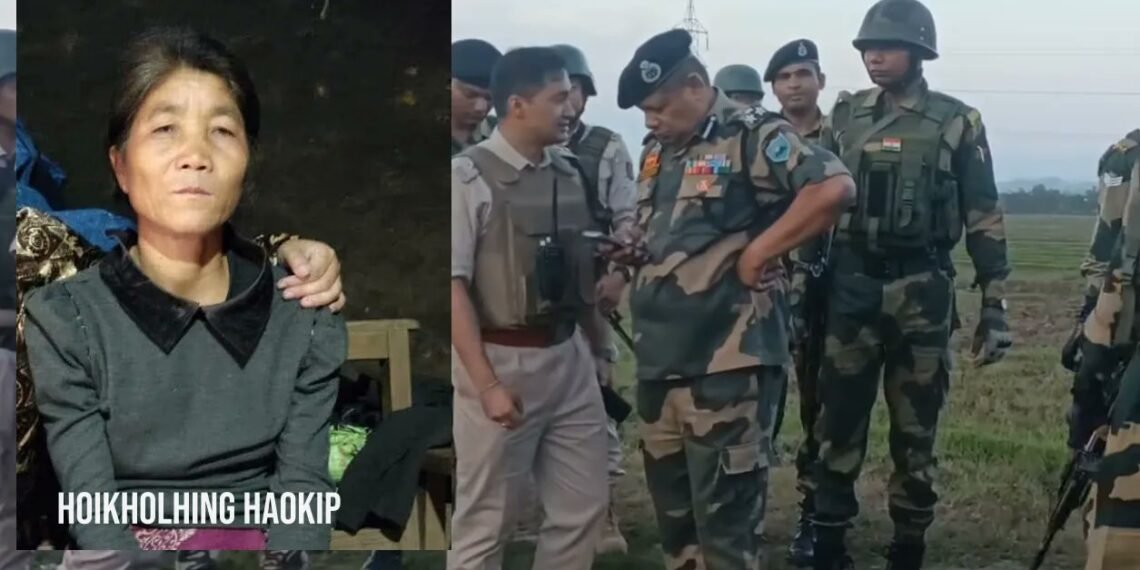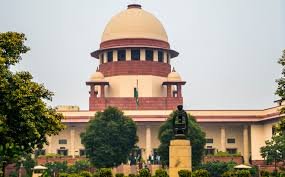The killing of a civilian Kuki woman during a security operation has intensified calls for accountability and de-escalation from both communities.
BY PC Bureau
June 22, 2025 — The resurgence of violence in Manipur’s Bishnupur and Churachandpur districts is raising serious concerns about the sustainability of peace efforts between ethnic communities in the state. At the centre of the latest unrest is the June 18 shooting of Ningthoujam Biren, a 60-year-old Meitei farmer, who was injured in the arm while working in his paddy field in Phubala village, Bishnupur district.
Local reports and Meitei groups allege that the attackers were Kuki militants operating from the adjacent hills of Churachandpur. The shooting, which took place near a buffer zone between ethnic territories, appears to be part of a pattern aimed at intimidating Meitei farmers from cultivating land in contested areas.
READ: Manasarovar Yatra Resumes via Nathula After Six-Year Hiatus
The situation escalated further when Hoikholhing Haokip, a civilian from Langchingmanbi village and wife of the village chief, was killed during a subsequent security operation in Chingphei, Churachandpur. The Thadou Students’ Association (TSA) alleged that she was shot at point-blank range while returning from her tobacco field — an act they claim amounts to a “fake encounter” and a grave violation of human rights.
There is no crossedfired, the security forces shoot directly as a target at her. Since she is the chief of the village. FYI this is not the first time security forces murder Kuki civilians. #Kukiland is the only solution. @official_dgar @the_hindu @IndianExpress @thewire_in pic.twitter.com/EHYlBdyxel
— Makharine16 (@RusselKhongsai) June 20, 2025
“It was not a stray bullet. She was shot at close range,” said a Thadou community leader, requesting anonymity. “In times like these, it’s safer not to speak.”
The Kuki Women’s Organisation for Human Rights (KWOHR) also condemned the killing and alleged involvement of Meitei militants, though local authorities and civil groups have denied these claims. Regardless of who was responsible, the death of an unarmed woman highlights the spiraling human cost of this conflict and the urgent need for restraint from all sides.
But beyond the blame game, a deeper issue looms — the lack of control over armed elements within the Kuki-Zo groups. Unless the Kuki-Zo leadership takes decisive action to rein in cadres, they risk forfeiting both moral ground and political credibility.

This could have dire consequences. The Suspension of Operations (SoO) agreement with the Union Home Ministry now hangs in the balance. Continued violence strengthens calls by Meitei leaders to revoke the pact altogether.
Tensions over land access remain a persistent trigger. On June 15, a clash broke out in Sadu Lampak, Imphal East, after Kuki residents objected to a Meitei farmer ploughing land they claim lies within the Sadar Hills Autonomous District. Meitei farmers, however, insist the land is ancestral. Such disputes are increasingly being used as pretexts for armed confrontation, further destabilizing already tense borders.
Incident Report: Shooting at Phubala and Subsequent Exchange of Fire
Today, at approximately 3:00 PM, one Ningthoujam Biren Singh, a cultivator from Phubala Awang Maning Leikai, was shot in his left arm by an unknown armed miscreant while working in his paddy field at Phubala…
— Manipur Police (@manipur_police) June 19, 2025
Organizations like COCOMI and AMUCO have demanded increased security in agricultural zones. As the Kharif season progresses, the ability of farmers to work safely could determine not just livelihoods, but regional food security.
A.P. Elangbam, president of COCOMI’s farmers’ wing, urged authorities to fix working hours and implement foolproof security measures during the ongoing Kharif season, citing two years of disrupted farming due to ethnic violence.\
READ: Anti-Defection Law: The Muzzle Silencing Manipur’s Tribal MLAs
Heisnam Phoren Mangang, publicity secretary of AMUCO, demanded a thorough probe into the shooting of Ningthoujam Biren, who was attacked by unidentified assailants on Thursday while working in his paddy field near Singeirok, close to the Bishnupur–Churachandpur border.

If the Kuki-Zo leadership is serious about advancing political dialogue with the Centre, they must act swiftly to ensure that violence is not used as leverage. Continued inaction risks derailing the peace process and invites state and central authorities to adopt a harder stance.
This conflict is no longer merely about territorial rights—it is about moral legitimacy. And legitimacy cannot be won through fear or gunfire.
TSA Condemns Phubala Violence, Demands Probe and Accountability
In a separate statement, the Thadou Students’ Association (TSA) strongly condemned the violence at Phubala and the death of Mrs. Hoikholhing Haokip during the retaliatory security operation. The organization alleged that Haokip, a civilian and respected community member, was shot at close range—raising concerns of a potential fake encounter.
“If proven true, this act is a gross violation of human rights,” the TSA stated.
The TSA also criticized the ongoing militarization of civilian zones, even under President’s Rule, arguing it has failed to ensure the safety of vulnerable communities. They accused the security apparatus of acting with impunity and eroding public confidence in the state’s ability to protect all its citizens.
In light of the twin incidents, the TSA demanded:
- A time-bound judicial inquiry into the shootings, or, if necessary, an independent investigation by a central agency such as the CBI or NIA.
- Immediate suspension of involved security personnel pending inquiry, and a full review of security protocols in conflict-prone areas.
- Compensation and medical assistance to the victims and their families.
The TSA also appealed to all communities to refrain from spreading unverified claims and to maintain peace.
“We reiterate our commitment to justice, human rights, and peaceful coexistence,” said Vicky Thadou, spokesperson for the Thadou Students’ Association.














